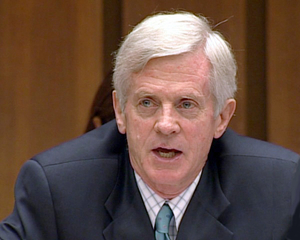Ottawa - Across the world, in many nations with differing models of governance, it appears that human dignity is under siege.
In Asia, for example, medical agents of the party-state in China are beyond any reasonable doubt removing for commercial purposes an average of 250 organs daily ,mostly from non-consenting prisoners of conscience in the Falun Gong, Uyghur Muslim, Tibetan Buddhist and house Christian communities.
Among the 54 nations of Africa, we find some of the world’s best-governed states, such as Botswana and Ghana, but also some, such as Zimbabwe and Angola, which are both mismanaged and corrupt and treat their citizens with thinly-veiled contempt.
In Europe, there are excellent leaders, such as Germany’s Angela Merkel and Lithuania’s Dalia Grybauskaite, but there are others, most notably Russian president Vladimir Putin, at the other end of the spectrum. Tragically, Putin has gutted his country’s nascent democracy and rule of law. He has also occupied militarily regions of Georgia, annexed Crimea from Ukraine and supported sham “republics” in east Ukraine.
Former Swedish prime minister Carl Bildt notes that Russian imperialism thrives when Europe and the West are divided as with the Yalta Conference in 1945. Extending NATO to include Central Europe and the Baltics was “essential to European security…Russia will come to terms with itself only if the West firmly supports those countries independence over a prolonged period of time.”
This is where the nature of Donald Trump’s administration comes into sharp focus internationally.What is the nature of his relationship with Putin? Does he have any business dealings with its oligarchs who reside in and outside the country? Do any of his companies have loans from Russian banks? What was the full extent and the impact of the hacking orchestrated by Russian Intelligence in the recent American elections? What have since been the interactions of his election and transition teams with the Russian government? Did any violate the Logan Act, which bars unauthorized persons from negotiating with foreign governments?
Yale historian Timothy Snyder wrote disturbingly recently in the New York Review of Books about the Reichstag fire in 1933, which Hitler used as a pretext to destroy both democracy and liberty in Germany:
In 1989, two centuries after our Constitution was promulgated, the man who is now our president wrote that “civil liberties end when an attack on our safety begins.”… When Vladimir V. Putin was appointed prime minister in August 1999, the former KGB officer had an approval rating of 2 percent. Then, a month later, the bombs began to explode in apartment buildings in Moscow and several other Russian cities, killing hundreds of citizens and causing widespread fear. There were numerous indications that this was a campaign organized by the KGB’s heir, now known as the FSB. Some of its officers were caught red-handed (and then released) by their peers…
When Putin first met the American media in Moscow in 2001 as Russia’s new leader, he also engaged in media-bashing, anti-Muslim sentiments, and defended attacking Chechnya allegedly to keep the rest of Russia safe. Journalist Susan Glasser, who was present, noted recently, “(Putin’s) slogan in 2001 might as well have been Make Russia Great Again.”
Reasonable leaders, individuals and independent media everywhere, including those now banned from U.S. presidential news briefings, must therefore work even harder to persuade both Trump and Putin that they are going in dangerous directions. Russia can still perhaps be persuaded that its long term best interest is to break with its imperial past, focus on domestic development and build constructive and peaceful bonds with its neighbors.
Following his relatively positive speech this week in Congress, we can hope that President Trump in turn might stop tweeting bumper sticker slogans, presumably composed by his chief strategist Steve Bannon, and begin saying sensible things about international issues in Europe and elsewhere. He should make it clear always that he recognizes the lynchpin nature of NATO in defending Western and Central Europe from Vladimir Putin’s preferences. His vice-president Mike Pence and defence secretary James Mattis have done so, but the president ought to do so whenever possible as well.
But this might be wishful thinking by those who maintain that all American presidents must reflect continuously the universal values of the American constitution both at home and everywhere-including in all dealings with the current Russian government and all other oligarchies. Meanwhile democracies and everyone yearning to be freein a world now in considerable disarray can only hope that the Trump administration reverts to longstanding American values despite its chaotic beginning.

David Kilgour was the former Canadian Secretary of State for Central Europe and the Middle East

























Comments
Please login to post comments.